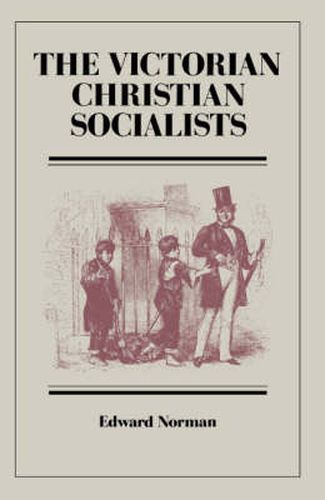Readings Newsletter
Become a Readings Member to make your shopping experience even easier.
Sign in or sign up for free!
You’re not far away from qualifying for FREE standard shipping within Australia
You’ve qualified for FREE standard shipping within Australia
The cart is loading…






Victorian Christian Socialism began as a protest against industrial evils by a group of Anglicans in 1848 - the year of the great Chartist demonstration. In F. D. Maurice it had a prophet and a thinker whose ideas inspired subsequent Christians, so that the ideals of the original Christian Socialists began to spread to other Churches. The result was a series of critiques of the England of their day, rather than a systematic ‘movement’, and is best analysed, as it is in this book, through an examination of the leading figures, who in addition to Maurice include Charles Kingsley, Thomas Hughes and John Ruskin. The present study is not a collection of biographical studies, however, but a history of Christian Socialism constructed around the most influential of its advocates. They are shown to have been ethical and educational reformers rather than politicians, but in their ability to stand outside the common assumptions and prejudices of their day they achieved social criticism of lasting value.
$9.00 standard shipping within Australia
FREE standard shipping within Australia for orders over $100.00
Express & International shipping calculated at checkout
Victorian Christian Socialism began as a protest against industrial evils by a group of Anglicans in 1848 - the year of the great Chartist demonstration. In F. D. Maurice it had a prophet and a thinker whose ideas inspired subsequent Christians, so that the ideals of the original Christian Socialists began to spread to other Churches. The result was a series of critiques of the England of their day, rather than a systematic ‘movement’, and is best analysed, as it is in this book, through an examination of the leading figures, who in addition to Maurice include Charles Kingsley, Thomas Hughes and John Ruskin. The present study is not a collection of biographical studies, however, but a history of Christian Socialism constructed around the most influential of its advocates. They are shown to have been ethical and educational reformers rather than politicians, but in their ability to stand outside the common assumptions and prejudices of their day they achieved social criticism of lasting value.